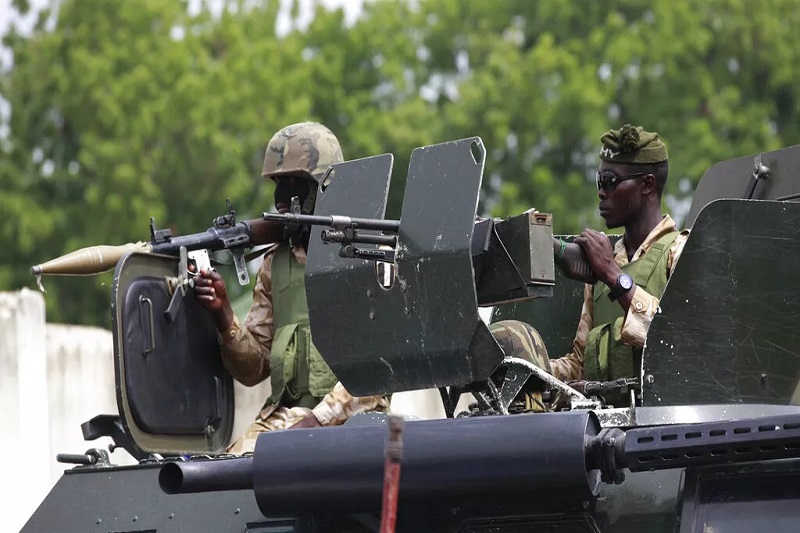According to a new report that was issued by the Nigerian Ministry of Defense on Wednesday, the Nigerian government recently made an announcement stating that it will take the first step towards the formation of a new state of the nation’s military in the coming years.
Babakura Kolo, the head of one of the local militias working with the government in the fight against jihadist groups, told AFP that the military unit was on patrol Monday in the village of Laayi, close to the town of Damasak (not far from the border with Niger), when their vehicle exploded on contact with an improvised explosive device.
According to Kolo, there were five casualties as a result of the incident, and he hypothesized that the Islamic State in West Africa (Iswap) organization was responsible for carrying it out. During the previous evening, jihadists carried out an attack on Laayi, during which they kidnapped four locals, one of whom was a local chief, and then planted the explosive device as they fled the area, according to him.
Related Posts
A second leader of the militia, Ibrahim Liman, has corroborated the information on the assault, including the number of casualties. The army was unable to provide a comment in the immediate aftermath of the incident.
In the northeastern region of Nigeria, where the Boko Haram and Iswap groups control large portions of the country and are stepping up their operations, a jihadist insurgency has been waging for the past 14 years. This presents a significant obstacle for President Bola Tinubu, who was just elected to office.
A bomb attack that targeted a military truck took place about a month ago close to the town of Banki, which is located close to the border with Cameroon. The attack resulted in the deaths of three soldiers. In addition, four soldiers and seven civilians were hurt in the incident.
In recent months, there has been a marked increase in the amount of fighting that takes place between the two competing jihadist organizations. This comes as the army has stepped up its operation against the groups.
The United Nations estimates that more than 40,000 people have been killed and two million have been forced from their homes in Nigeria as a direct result of the violence that began with the Boko Haram insurrection in 2009. Since then, the violence has expanded to the countries of Cameroon, Chad, and Niger, which are all neighbors.

